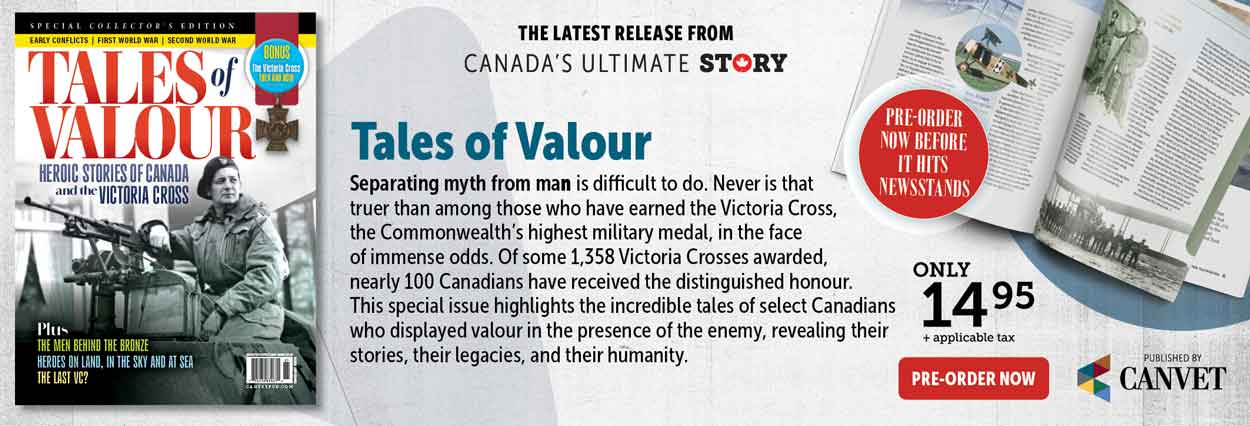by David J. Bercuson
 |
|
William Lyon Mackenzie King |
The argument as to whether or not Canada ought to participate in the United States Ballistic Missile Defense System may never be decided on the actual merits of the case. Certain elements in Canada see too much political capital to be gained from the issue to ever allow its underlying realities to be dispassionately debated (The Missile Defence Debate, March/April). Yet the startling revelation early this year of a global black market in nuclear weapons technology ought to be the one fact that makes Canadian assent an open and shut case.
The public side of the story first emerged with the public confession by Abdul Qadeer Khan, the so-called father of Pakistan’s nuclear weapons program, that he had sold nuclear secrets to a number of states including Libya, Iran and North Korea and probably also Syria.
The head of the International Atomic Energy Agency, Mohamed ElBaradei accused Khan of running “a veritable Wal-Mart” for nuclear weapons.
Within months after Khan’s confession, the shadowy story began to emerge. Iran was found to have purchased or built advanced equipment to separate fissile, that is weapons-grade, uranium from the ordinary kind. Malaysia was discovered selling equipment that has no other use than to enrich uranium to Libya. Libya finally bowed to international pressure to cease from any further development of weapons of mass destruction and weapons inspectors then discovered that it too had been working on nuclear weapons. North Korea’s possession—
or imminent possession—of nuclear weapons has long been suspected but only recently has the truly advanced nature of the Iranian atomic weapons program come to light.
Apparently no one knew anything about either the Syrian or the Libyan atomic weapons programs and very little about the Iranian.
The international surprise that greeted the news of Khan’s multinational atomic weapons enterprise must be placed within the context of the utter failure of both British and American intelligence to actually know what weapons of mass destruction Saddam Hussein had in late 2002. Apparently none.
Taken together, the implications are clear: no one knows for sure who is developing nuclear weapons right now or where. No one knows what stage of development those weapons are at either.
Nuclear weapons are one thing, delivery systems are another. What is probable to a fairly high degree of certainty is that about a dozen nations either possess long range missiles right now or will possess them in the next decade.
Put the two developments together and the conclusion is inescapable: the U.S. simply must continue to develop a workable ballistic missile defence system before some future American government faces the potential dilemma of nuclear blackmail or the actual horror of a sneak atomic attack.
Canada is never likely to be a target of such blackmail or attack. Whoever develops an illicit nuclear capability with the delivery system to go with it won’t waste it on Canada. But Canada has been a partner with the United States in continental defence since August 1940 when William Lyon Mackenzie King and Franklin D. Roosevelt agreed on the Permanent Joint Board of Defence which still exists today. It was a matter of vital Canadian national interest to engage the U.S. in such defence planning then—after the fall of France and just at the start of the Battle of Britain—and it remains a vital Canadian interest now.
There are three related reasons why that is so. First, national sovereignty is the first duty of nationhood and every nation must defend itself to the best of its ability. Second, Canada has been blessed with the second largest national territory on the globe but nowhere near the means to defend it all. Finally the defence of Canada is a vital national interest of the United States, which does have the means to defend Canada if it won’t defend itself.
Over the last 64 years innumerable agreements have been put into place that now define the continental defence relationship. They regulate a broad range of activities from the exchange of service personnel to the joint command of the defence of North American air space. The latter is carried out through Norad—the North American Aerospace Defence Command—which tracks virtually every object in the air and in space over Canada as well as the United States. Scrap Norad and Canada would have to choose between replacing it at a cost that would probably pay for decades of medicare or simply allow the air and space over Canada to be used by others, for their own purposes, without Canadian knowledge, let alone acquiescence.
Norad isn’t going to be scrapped. But if Canada is shut out from Norad in the future because the United States chooses to place its ballistic missile defence system under the auspices of Norad, and Canada refuses to take part, then for Canada, it might as well be.
This is the basic fact that Canadian opponents of missile defence refuse to publicly debate. The U.S. will develop a ballistic missile defence system because it cannot gamble its future on the hope that all illicit nuclear weapons programs will always be unearthed and dismantled in good time and it won’t matter who sits in the White House. Therefore, Canada either joins in the effort or is relegated to the sidelines.
If Canada is relegated to the sidelines, the basic decisions about future continental defence policy will be made solely in Washington, with no Canadian input whatever.
There is simply no other rational course for Canada to follow than to join the U.S. in building a missile defence system for North America. If we do, then we will have some say, no matter how small, on issues such as putting weapons in space. If we don’t, then we’ll have no say whatever in our own defence.
Advertisement




















